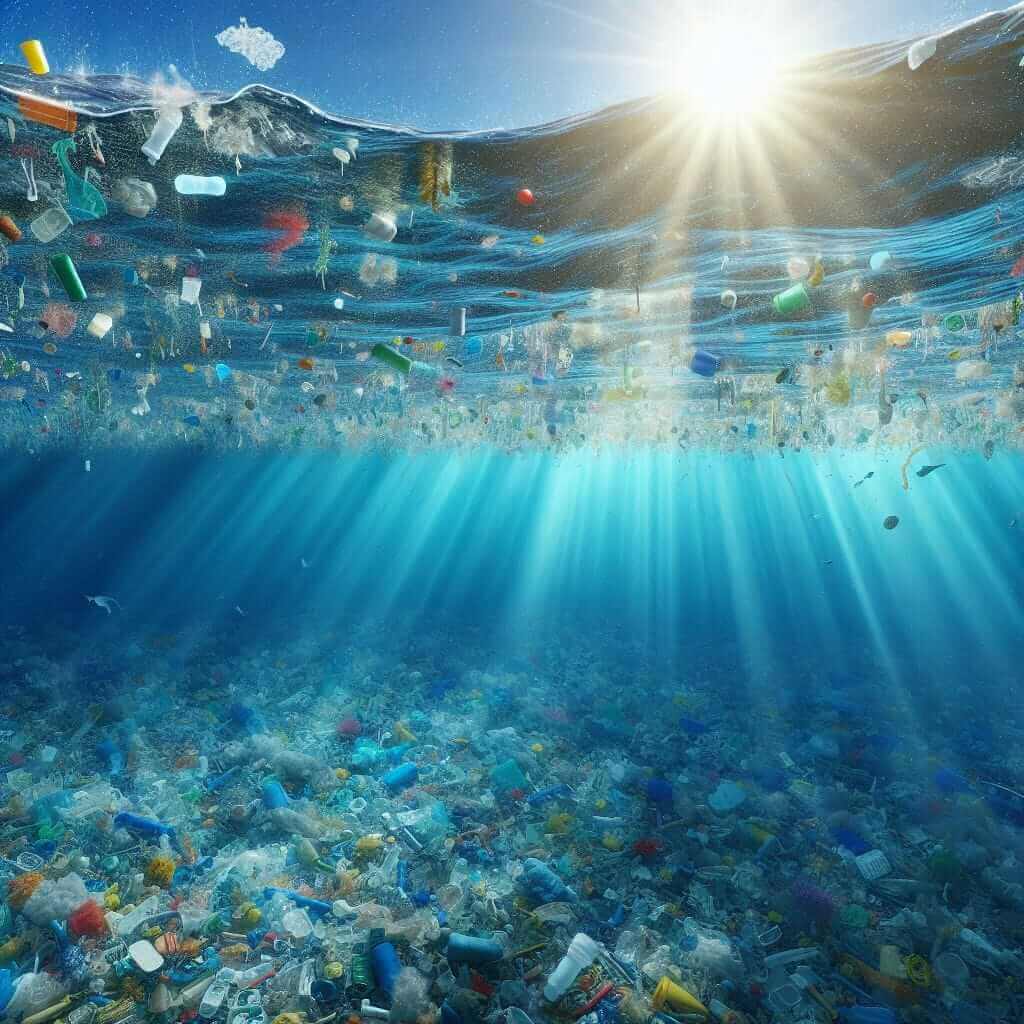The IELTS Reading section demands not just reading comprehension but also the ability to understand and analyze complex texts. One recurring and contemporary topic revolves around environmental issues, particularly the impact of microplastics on marine life. This theme has become increasingly common in recent IELTS exams due to growing global awareness of environmental degradation. Today, we’ll explore this topic through a well-crafted reading passage, questions, and detailed answers, providing a comprehensive exercise for IELTS preparation.
Nội dung bài viết
- Sample IELTS Reading Passage: Medium Text
- The Impact of Microplastics on Marine Life
- Questions
- Multiple Choice
- Identifying Information (True/False/Not Given)
- Matching Information
- Summary Completion
- Answer Key
- Common Mistakes and How to Avoid Them
- Common Mistakes
- Vocabulary
- Grammar
- Tips for Scoring High in IELTS Reading
Sample IELTS Reading Passage: Medium Text
The Impact of Microplastics on Marine Life
Recent studies have brought to light the pervasive presence of microplastics in our oceans. These microscopic plastic particles, usually less than 5 millimeters in diameter, originate from the degradation of larger plastic waste and synthetic textiles. The ubiquitous nature of microplastics in marine environments has raised considerable concerns among scientists and environmentalists.
Microplastics have been found in the digestive systems of a wide range of marine organisms, from the tiniest plankton to the largest whales. When ingested, these plastics can cause physical harm and biochemical stress, often leading to reduced feeding, growth, and reproductive success. For instance, studies have shown that fish larvae exposed to microplastics exhibit altered feeding behaviors, leading to stunted growth and higher mortality rates.
Apart from their ingestion, microplastics can also act as vectors for harmful pollutants. These tiny particles tend to adsorb toxic chemicals from the surrounding water, including persistent organic pollutants (POPs) and heavy metals, effectively becoming carriers of these dangerous substances. When marine animals ingest microplastics laden with toxins, these harmful substances can bioaccumulate in their tissues and be transferred up the food chain, potentially affecting higher trophic levels, including humans.
Microplastics pose other indirect threats to marine ecosystems as well. They have been found to interfere with the behavior and population dynamics of certain species. For example, changes in the buoyancy of microplastics can lead to altered swimming patterns in small fish and plankton, disrupting their role in the food web.
<
The high concentration of microplastics in some oceanic regions, known as marine “garbage patches,” exacerbates these problems. The most infamous of these is the Great Pacific Garbage Patch, estimated to contain 1.8 trillion pieces of plastic that continue to break down into microplastics. The impact of these patches goes beyond immediate ingestion risks, as they can affect entire ecosystems by altering the physical and chemical properties of marine environments.
Addressing the issue of microplastics in marine environments requires a concerted effort from governments, industries, and individuals. Solutions range from improving waste management practices and reducing plastic production to developing biodegradable alternatives and promoting global policies aimed at plastic reduction. Public awareness and education are also crucial in fostering a sense of responsibility towards reducing plastic pollution and protecting marine life.
Questions
Multiple Choice
-
What is one primary source of microplastics?
- A. Natural seaweed
- B. Degradation of larger plastic waste
- C. Marine animal excretion
- D. Volcanic activities
-
Which marine organisms have been affected by microplastics?
- A. Only large whales
- B. Only fish larvae
- C. A wide range of marine organisms
- D. Only sea birds
Identifying Information (True/False/Not Given)
- Plankton are unaffected by microplastics. (True/False/Not Given)
- Microplastics can carry harmful pollutants. (True/False/Not Given)
- There are more plastic particles than plankton in some parts of the ocean. (True/False/Not Given)
Matching Information
-
Match the effects of microplastics with the corresponding outcomes:
- A. Altered feeding behavior
- B. Bioaccumulation of toxins
- C. Changes in buoyancy
Outcomes:
-
- Disrupted role in the food web
-
- Exposure to toxic chemicals
-
- Stunted growth in fish larvae
Summary Completion
Fill in the blanks with no more than two words.
Recent studies have shown that microplastics are profoundly affecting marine life. These particles are found in the 7 systems of various organisms, causing physical harm and 8 stress. Solutions include improving waste 9 practices and adopting biodegradable alternatives.
Answer Key
-
B – Degradation of larger plastic waste
-
C – A wide range of marine organisms
-
False – Plankton are indeed affected by microplastics.
-
True – Microplastics can adsorb harmful pollutants.
-
Not Given – The passage does not specifically mention the comparison of plastic particles to plankton quantities.
-
A-3, B-2, C-1
-
Digestive
-
Biochemical
-
Management
Common Mistakes and How to Avoid Them
Common Mistakes
- Misreading the Passage: Many students fail to understand the passage correctly, leading to incorrect answers. Always read the passage carefully and try to understand the main points.
- Inaccurate Information Identification: Some students confuse information present in the passage. Practice identifying information correctly.
- Poor Time Management: Spending too much time on one question can limit the ability to complete the test. Prioritize your time effectively.
Vocabulary
- Pervasive (adj.): /pərˈveɪ.sɪv/ – existing everywhere
- Ingestion (n.): /ɪnˈdʒes.tʃən/ – the process of taking food into the body
- Bioaccumulate (v.): /ˌbaɪ.oʊ.æˈkjuː.mjə.leɪt/ – accumulate in biological organisms
Grammar
- Passive Voice: e.g., “Microplastics have been found…”
- Relative Clauses: e.g., “These plastics, which can cause physical harm…”
Tips for Scoring High in IELTS Reading
- Practice Regularly: Daily reading practice can improve speed and comprehension.
- Expand Your Vocabulary: A wide range of vocabulary will help you understand various types of texts.
- Practice Skimming and Scanning: These techniques help in locating information quickly.
- Time Management: Allocate time for each reading passage and stick to it.
In conclusion, understanding the effects of microplastics on marine life is not only crucial for your IELTS preparation but also enhances your knowledge of a significant global issue. Happy studying!